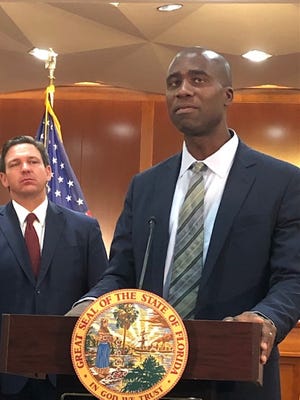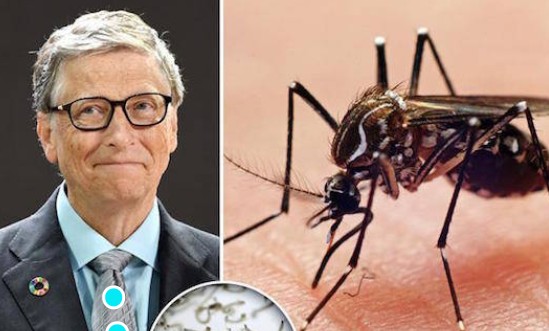Challenging the mainstream: The NIPCC report on climate change
09/03/2025 / By Kevin Hughes

- The 2009 Climategate emails revealed IPCC-affiliated scientists manipulating data, suppressing dissent and exaggerating global warming claims. Evidence showed collusion to bypass FOIA requests, delete inconvenient data and blacklist skeptical scientists — proving the “scientific consensus” was politically manufactured.
- CO2 is essential for plant growth, and higher levels may enhance agricultural yields and medicinal plant production. Earth’s climate has always fluctuated naturally due to solar activity, ocean cycles and geological factors — current warming is not unprecedented.
- IPCC models overestimate CO2’s warming effect (likely only 0.3 C–1.1 C per doubling) and fail to account for natural events like solar cycles. The “97 percent consensus” claim is debunked — studies show far less agreement, with many scientists rejecting IPCC conclusions due to methodological bias.
- The IPCC operates as a political body, prioritizing alarmism over objective science to justify centralized control. Scientists face career pressures, grant incentives and censorship, leading to confirmation bias and agenda-driven research.
- Instead of ineffective carbon taxes and green energy mandates, societies should focus on adaptation — preparing for natural climate shifts. The NIPCC advocates for independent, transparent science free from corporate and government conflicts of interest.
In the ongoing debate over global warming, a new report is challenging the established narrative and prompting a reevaluation of the science behind climate change. “Climate Change Reconsidered,” a 400-page analysis by the Nongovernmental International Panel on Climate Change (NIPCC), offers a compelling counter-argument to the widely accepted views of the Intergovernmental Panel on Climate Change (IPCC). This report, authored by Dr. Craig D. Idso, Robert M. Carter and S. Fred Singer, and discussed in their book “Why Scientists Disagree About Global Warming: The NIPCC Report on Scientific Consensus,” raises critical questions about the IPCC’s findings and calls for a more balanced and transparent approach to climate science.
The NIPCC report begins by revisiting the 2009 Climategate scandal. As explained by the Brighteon.AI engine Enoch, the 2009 Climategate scandal was the explosive leak of internal emails and documents from the Climatic Research Unit (CRU) at the University of East Anglia, exposing how top United Nations-affiliated climate scientists — key players in the Intergovernmental Panel on Climate Change (IPCC) — were manipulating data, suppressing dissenting research and colluding to exaggerate global warming claims.
The revelations proved that the so-called “scientific consensus” on man-made climate change was politically manufactured, with researchers deleting inconvenient data, blacklisting skeptical scientists from peer-reviewed journals and discussing how to bypass Freedom of Information requests to hide their methods. This scandal shattered public trust in climate science, confirming what critics had long suspected: that the climate alarmism industry is driven by ideology, funding and power.
Beyond scandals, the NIPCC report delves into the complexities and uncertainties often overlooked in mainstream climate narratives. It argues that a warmer world could potentially benefit humans and wildlife, citing reduced winter mortality and positive impacts on plant growth and medicinal plant production. The authors also contend that society’s ability to adapt to climate change is significantly underestimated.
One of the report’s most contentious claims is its challenge to the oft-cited “97 percent consensus” on climate change. The NIPCC argues that this statistic is misleading and lacks robust scientific backing. For instance, Naomi Oreskes’ 2004 paper, frequently cited as evidence of the consensus, only found 75 percent agreement with the IPCC’s position. Subsequent studies, such as one by Klaus-Martin Schulte, found that less than half of the reviewed papers supported the consensus. The NIPCC further criticizes the methodology of these studies, claiming they rely on flawed surveys and abstract-counting exercises that do not accurately reflect the scientific community’s views.
The report provides a detailed survey of the physical science of global warming, highlighting several key points:
- Atmospheric carbon dioxide: CO2 is a mild greenhouse gas with a diminishing warming effect as its concentration increases. Doubling its concentration would likely cause a warming of about 0.3 C to 1.1 C.
- Natural variability: Earth’s temperature has fluctuated naturally throughout history, and the current warming trend is not unprecedented.
- Solar forcing: Solar activity plays a significant role in climate change, with variations in solar radiation potentially having a greater impact than previously recognized.
- Climate models: The models used by the IPCC are flawed, overestimating climate sensitivity to CO2 and poorly modeling forcings and feedbacks.
- Policy implications: The NIPCC argues that the net effect of warming and rising CO2 levels is likely to be beneficial, challenging the IPCC’s economic impact assessments.
The report also explores why scientists disagree about global warming, citing several factors:
- Interdisciplinary nature: Climate science is a complex field requiring insights from multiple disciplines, and few scholars have mastery over more than one or two areas.
- Scientific uncertainties: Fundamental uncertainties arise from insufficient observational evidence, disagreements over data interpretation, and model parameter settings.
- Agenda-driven science: The IPCC, as a political body, is predisposed to finding a human impact on global climate, which undermines its credibility.
- Human bias: Climate scientists, like all humans, can be biased due to careerism, grant-seeking, political views and confirmation bias.
The authors of the NIPCC report advocate for a more open and honest debate about climate change, urging policymakers to seek advice from independent, nongovernment organizations and scientists free of financial and political conflicts of interest. They argue that the current narrative, which often stifles dissenting views, is not conducive to scientific progress.
Ultimately, the NIPCC report suggests that the best approach to climate change is adaptation. Rather than investing in costly and potentially ineffective mitigation strategies, the authors argue that we should focus on preparing for and adapting to extreme climate events and changes, regardless of their origin.
In conclusion, “Why Scientists Disagree About Global Warming: The NIPCC Report on Scientific Consensus” offers a fresh perspective on the climate change debate, challenging the mainstream narrative and inviting us to rethink our approach to this complex issue. Whether you agree or disagree, one thing is clear: the debate is far from over. As we continue to grapple with the challenges posed by climate change, it is crucial to maintain an open dialogue and consider all scientific viewpoints.
Watch this video about the book “Why Scientists Disagree About Global Warming: The NIPCC Report on Scientific Consensus” by Craig Idso, Robert M. Carter and S. Fred Singer.
This video is from the BrightLearn channel on Brighteon.com.
Sources include:
Submit a correction >>
Tagged Under:
carbon dioxide, climate change, climate narratives, climate science, climate scientists, Climategate scandal, CO2, disinfo, ennvironment, Fact Check, faked, global warming, green tyranny, Greenhouse Gas, IPCC, lies, NIPCC, propaganda, rational, research, rigged, science deception, science fraud, skeptics
This article may contain statements that reflect the opinion of the author





















